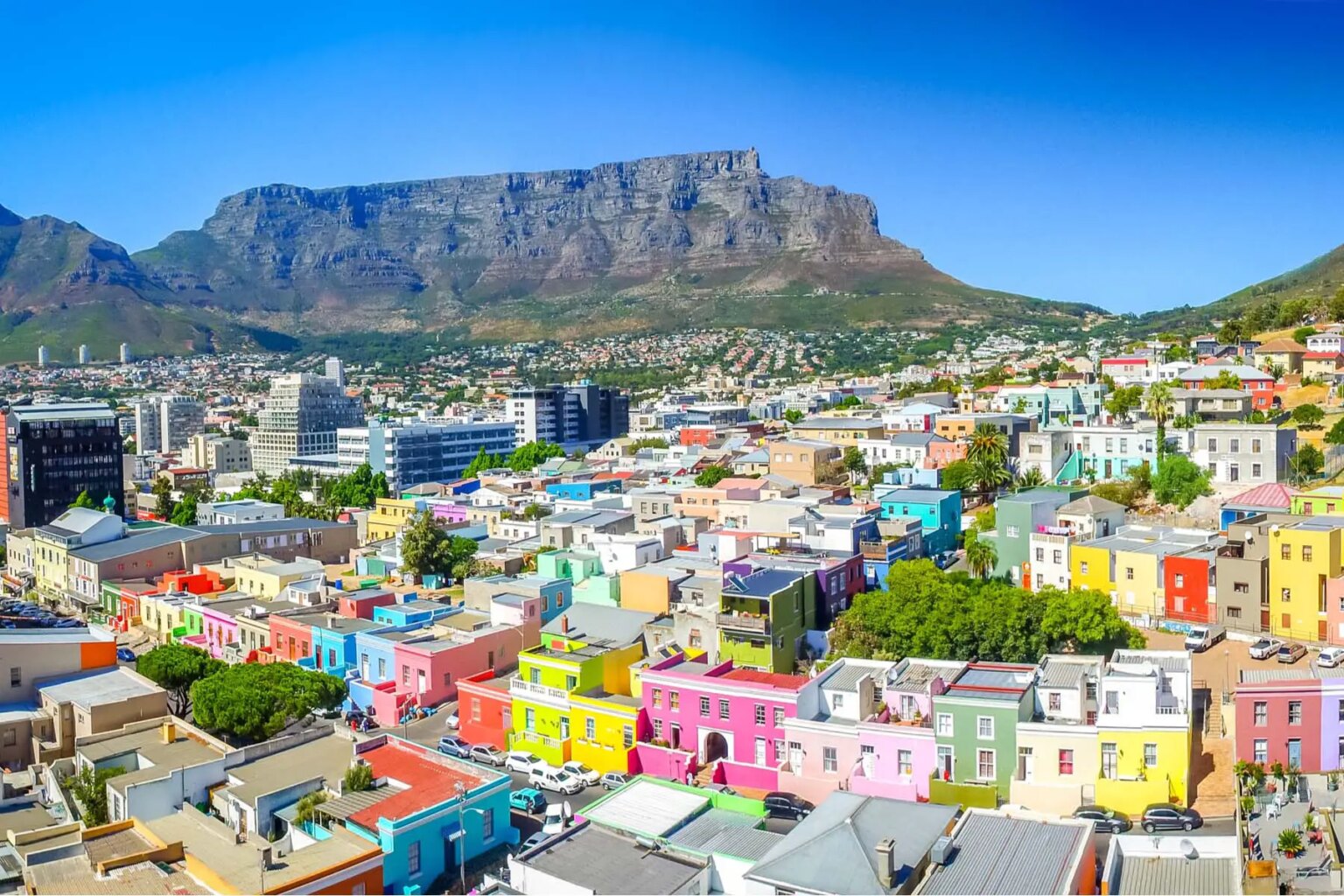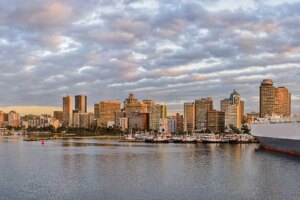South Africa is one of the world’s most beautiful countries, and many expats quickly fall in love with the quality of life on offer. With 11 official languages, you can expect a melting pot of cultures, incredible food, and plenty of history. Pair that with great wine, and breathtaking scenery covering everything from blood-red bushveld sunsets to sea vistas, it’s not hard to see why relocating to South Africa is so appealing.
Before you book your flights for your South African adventure, there are a few things you’ll need to consider. From where to live in Johannesburg or Cape Town to the processes around visas and immigration, and maybe even the quality of schools, there’s plenty to think about. To help you out, we’ve put together an ultimate checklist of everything that should be on your mind if you’re moving to South Africa.
- Do your research
- Decide where you want to live
- Arrange your visa
- Move your belongings to South Africa
- Arrange your pet’s move to South Africa
- Sort out your health insurance
- Start looking for a job
- Sort out your finances
- Find a place to stay
- Look into childcare and schooling options
- Get an International Driving Permit
- Brush up on your language skills
- Indulge in South African culture
Sirelo
It's no secret that moving abroad can be stressful. Sirelo's team of removal advisers is here to help. They provide five free quotes from international moving companies so you can find the best options at the best prices. Take the stress out of your relocation to South Africa with Sirelo.
Do your research
Before you start the process of moving to South Africa, you’ll want to do some research into key elements of a new life abroad. You probably can’t wait to head off on safari, explore the Cape Winelands, or tuck into all the great food that can be found throughout the country. But, if you’re planning a move to Mzansi, you should dig a little deeper and find out more about your new home.

Spending some time considering everyday things like the climate, the culture, and the legal system will set you up for a more successful move when the day comes. To get you started, be sure to read our articles on:
Decide where you want to live
If you’re moving to South Africa, you’ll probably be overwhelmed with the choice of places to call home in this vast country. Many international arrivals choose to settle in either the vibrant seaside city of Cape Town or Africa’s economic hub of Johannesburg. Both of these are world-class, cosmopolitan cities with great housing, schools, and other amenities.

Other popular cities to live in South Africa include Jacaranda City (and one of South Africa’s three capital cities) Pretoria, the scenic and quiet towns along the coastal Garden Route, and the bustling, tropical Durban –where you can swim in the sea all year round! Wherever you decide, be sure to do plenty of research ahead of time to ensure your new life under the South African sun starts on the right foot.
Arrange your visa
Before you can call the country home, you’ll need to secure an appropriate visa. South Africa has a complex visa system and applications may take longer than expected – so it’s best to apply well in advance. You may also want the services of an immigration lawyer to help you navigate the system.
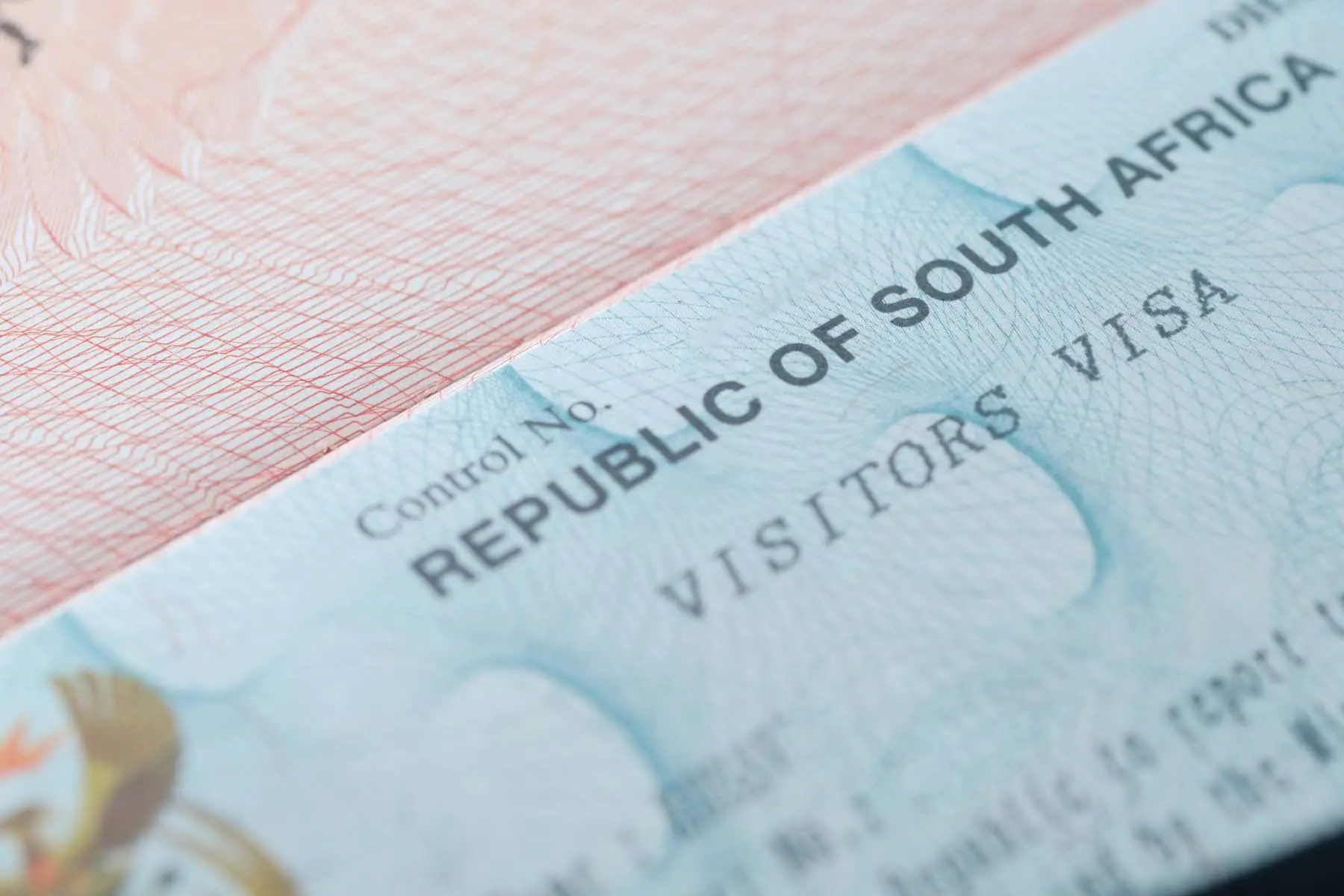
However, visas are essentially divided into two broad categories: temporary residence visas and permanent residence permits. Within these categories, you’ll find many more visas allowing you to work and live in South Africa. Our look at visas and immigration in South Africa provides an in-depth look at the types of visas and residence permits available, as well as where and how to apply for them.
Move your belongings to South Africa
When it comes to relocating abroad, the thought of transporting all your worldly possessions to another country can be daunting. Indeed, chances are South Africa isn’t a short hop, skip, and jump away from where you’re currently living. This means getting all your belongings to your new home will likely be a logistical challenge. However, start your planning early and give yourself the best chance of a low-stress move.
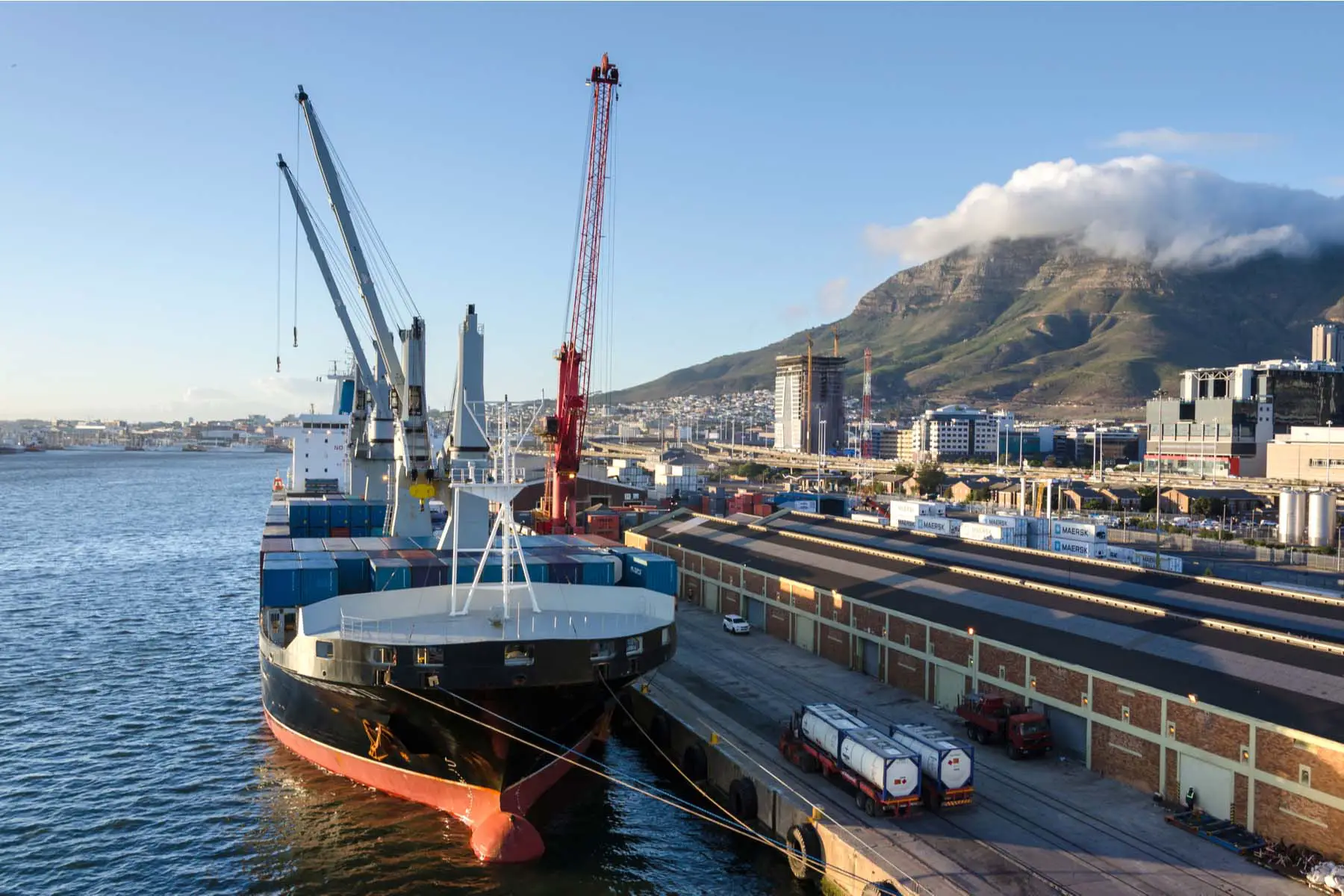
To help smooth things over, many expats choose the security of using a global relocation company. These companies can help with all aspects of personal and corporate relocations and should be your first port-of-call for your move. Some also offer storage options, which can be a great help if you don’t already have a home arranged in South Africa. Relocation options include:
For more information on preparing your move, read our guide to relocation options for moving to South Africa.
Arrange your pet’s move to South Africa
A home isn’t a home without the furry kids, too! Whatever pet your family has, bringing your dog, cat, or any other four-legged friend along for the adventure in South Africa is entirely possible. After all, South Africa is an excellent place for them to explore – although be careful of the local fauna in some of the country’s more rural areas!

However, as you might expect, this comes with some extra cost and admin, such as specific permits, vaccinations, and forms. You can find a full list of instructions on the South African Government’s website. If you’re using a relocation company, you can speak to your agent to find out all the information you’ll need regarding paperwork and logistics. If you’re going alone, be sure to speak to your airline well ahead of time to get an estimate of costs and what your pet can expect when flying as cargo.
Sort out your health insurance
If you’re relocating to the other side of the world, you’ll want to ensure you and your family have access to the best healthcare throughout the move. Health insurance isn’t legally required when moving to South Africa, but it is often preferable. Health insurance gives you access to private healthcare and hospitals, rather than the government healthcare system which can be slow, inefficient, and underfunded.

If you have private health insurance in your home country, speak to your insurer about switching to an international policy that covers South Africa. Alternatively, you can take out a new policy before you move, which may well keep you covered during your move, too. International health insurers operating in South Africa include:
For more information, read our guide to health insurance in South Africa.
Start looking for a job
Perhaps you’ve already got a job sorted for when you finally make the move to South Africa. Or maybe you’re planning to work for yourself in your new home – in which case you’ll need to register a business. However, if neither of those things sounds like they fit into your plans, it’s time to tackle the local job market!
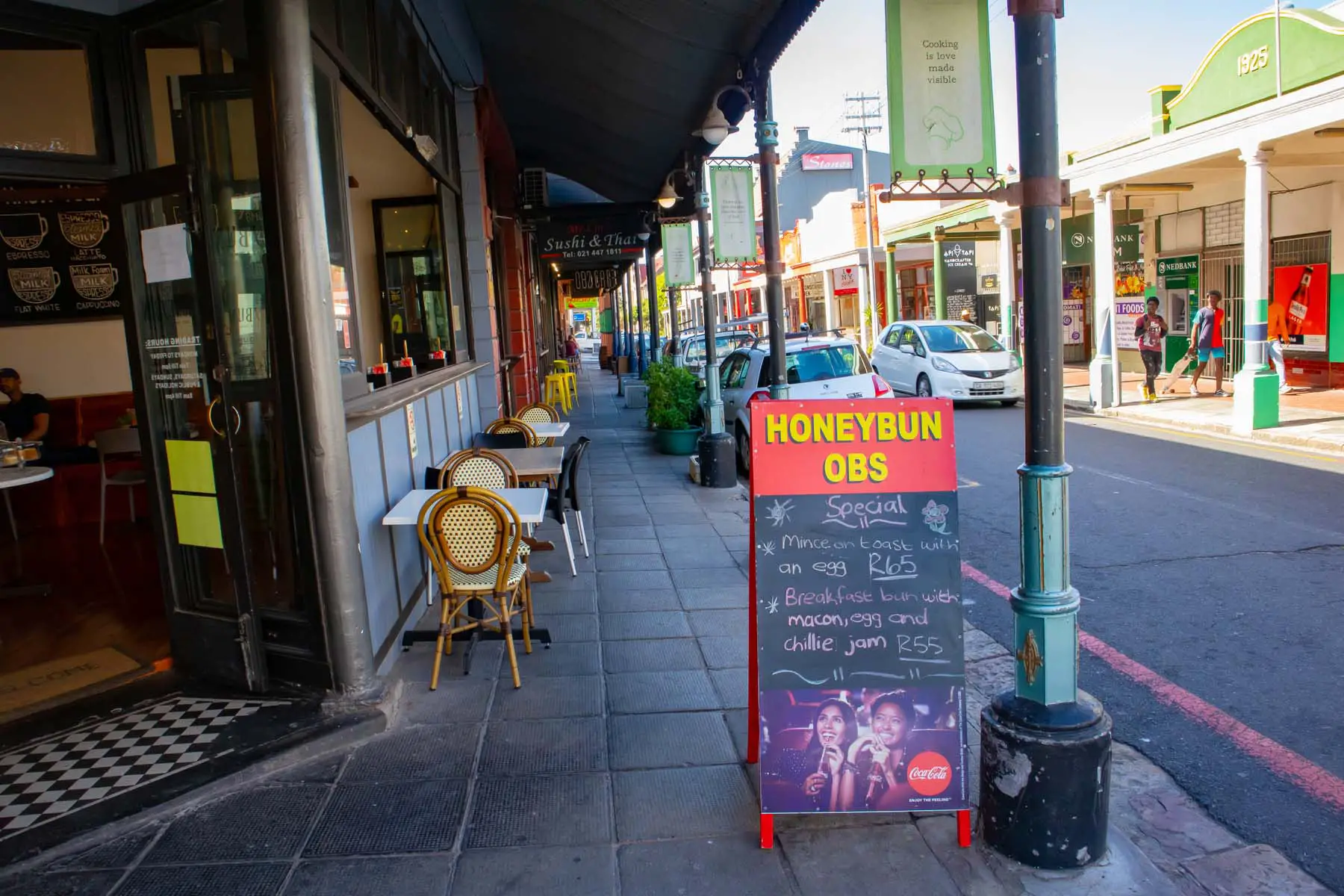
The ease with which you’ll find a job in South Africa depends to a large extent on where you’re based and what your skills are. Fluent English is almost essential for working in South Africa as a skilled employee. You’ll typically find the most job opportunities in large cities, such as Johannesburg and Cape Town. That said, an increasing number of South African companies are now open to fully remote candidates, so you may be able to work from anywhere in Mzansi!
Sort out your finances
One of the major advantages for people moving to South Africa is the relatively low cost of living. However, despite this, you’ll still need to keep an eye on your finances throughout your relocation as costs can quickly mount. Unfortunately, as many expats can tell you, there always seem to be additional payments and costs that even the most well-planned move doesn’t account for.

Before making the move to South Africa, it’s important to do your research on how to open a local bank account, the South African tax system, and more. This will help you better plan your longer-term finances. Be aware that many expats don’t initially have proof of address, which can be a hurdle when sorting financial services. If you need to send money internationally to help tide you over, easy-to-use transfer platforms include:
For more information, read our article on international money transfers in South Africa.
Find a place to stay
Do you dream of living in the bustling heart of Cape Town or Johannesburg? Or perhaps you’d prefer somewhere more remote surrounded by all that beautiful South African scenery? Whatever your ideal home looks like, chances are you’ll need to find something a little more temporary for the first few weeks after your move to South Africa. Not only is this typically the easiest accommodation to find, but it will also give you plenty of time to get your bearings in your new home and decide where to live in South Africa.
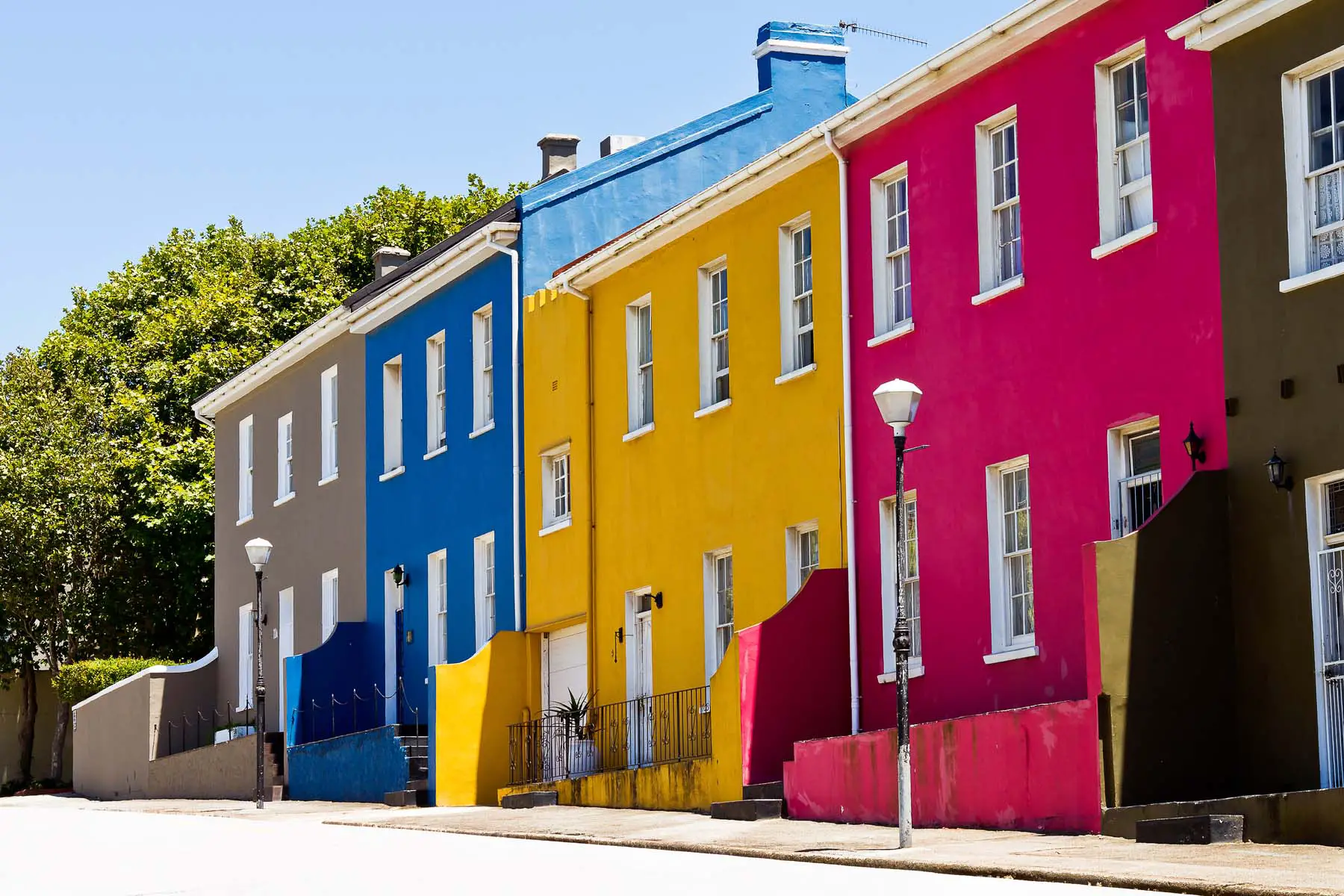
Some expats will be lucky enough to have their new South African employer sort out somewhere to stay before they arrive in the country. For the vast majority, however, this isn’t the case. If you’re in need of somewhere temporary, a serviced apartment can be a great option for the first few weeks or months. Alternatively, you might find longer-term holiday lets on some online accommodation portals. This would give you time to plan your next move and decide whether you want to rent in South Africa.
Look into childcare and schooling options
If you’re moving to South Africa with the whole family, including school-going children, you’ll want to look into the education system. The good news is that South Africa has plenty of English-speaking public and private schools. There are also international schools in most major cities, which offer international qualifications, such as IGCSEs and the International Baccalaureate.

If your children are younger, you might want to check out the local pre-school and childcare options available in your new home. Remember that places can fill quickly for the more sought-after childcare centers, so be sure to look well ahead of time to avoid disappointment. There are other options you may wish to consider as well, such as hiring an au pair in your new home.
Get an International Driving Permit
Want to get out there and explore the breathtaking beauty of South Africa? You’ll probably need a car. New arrivals are able to legally drive on their existing license for up to 12 months. However, after this, you will need to apply for a local license. To help make driving in South Africa easier, you should apply for an International Driving Permit in your home country. This should avoid any confusion over foreign licenses.
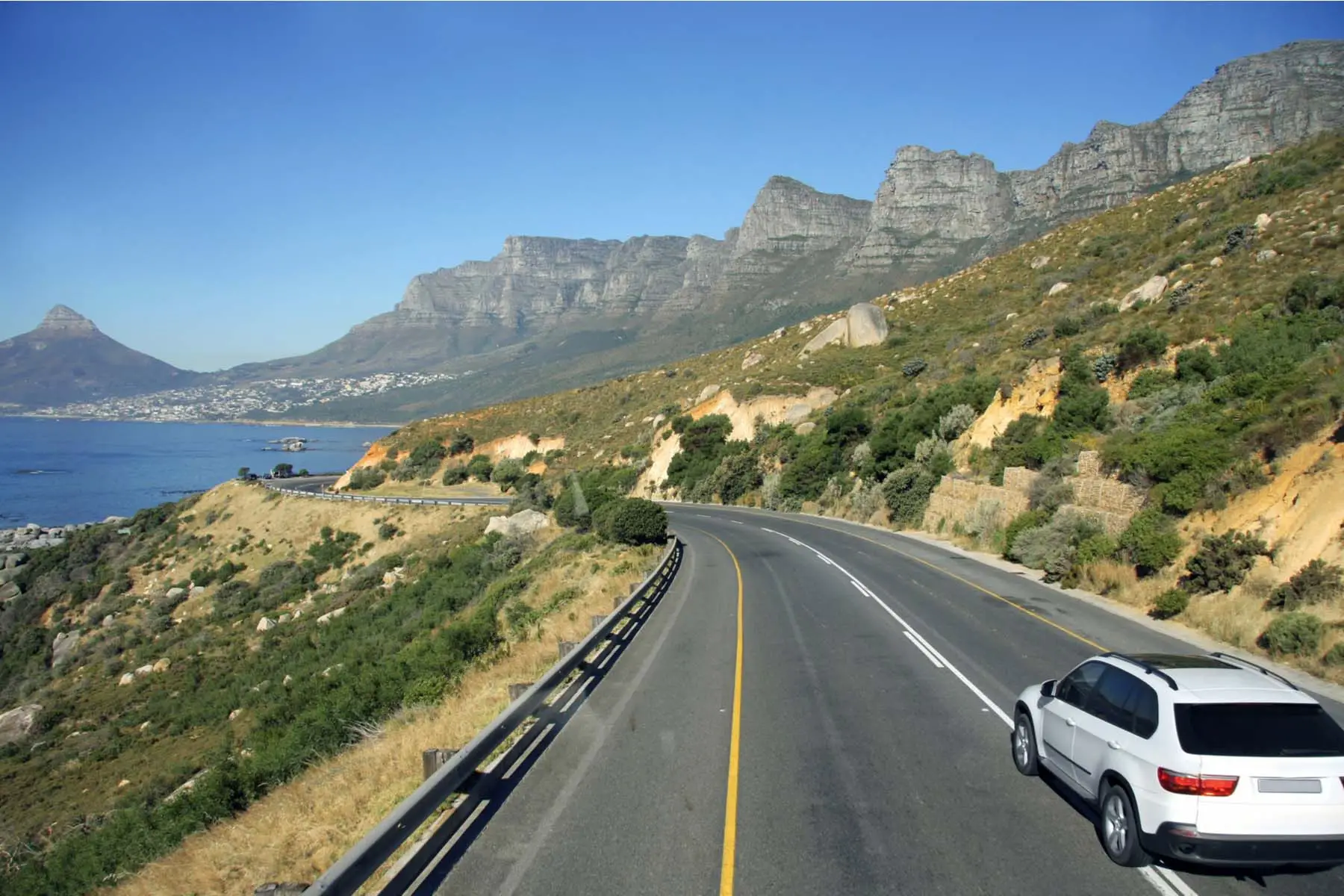
Another thing to think about is what you’re going to drive in South Africa. Buying a vehicle in South Africa can be costly, and local public transport systems aren’t as well-developed as they are in parts of Asia and Europe. However, if you’re thinking of importing your car to South Africa, there are a number of guidelines to be aware of before you make the move. Speak to your relocation company for more information.
Brush up on your language skills
Though you’ll find that most South Africans speak at least some English, learning one of the other local languages will help you to build better connections and chat with a wider variety of locals. With a whopping eleven languages to choose from, you’re spoilt for choice. After moving to South Africa, you’ll soon realize that most locals speak at least two (and often as many as five or six) languages.

Zulu is one of the most commonly spoken languages across the country – or maybe you’d prefer to try Afrikaans? Taking a language course can help you integrate into the community more easily, especially if you’re relocating to a neighborhood where English is commonly a second or third language.
Indulge in South African culture
Can’t wait to start your South African adventure? Then don’t! You can kick off your new life before you even move with a few tasters of the country. There are plenty of ways to do this. For starters, why not try some of these great South African recipes? Or you can read up on how to perfect that most South African of meals, the braai.

If barbecued meat isn’t your thing, there are a number of ways you can get under the skin of your new home, such as books and movies. There is also a whole host of great South African content right here on Expatica. From a deep dive into the local government and political system to the 10 best places in South Africa to visit, we’ve got you covered.
